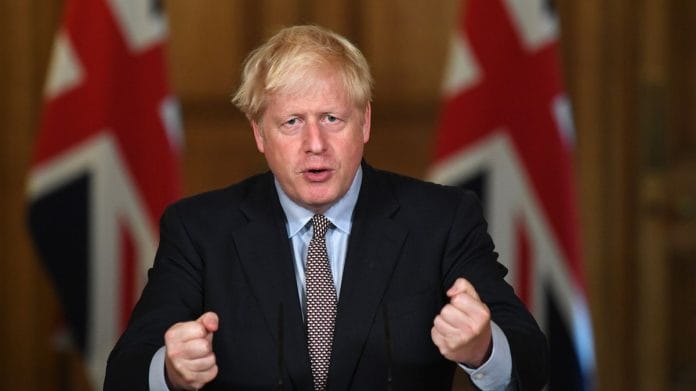Brussels: Deep in the European Commission’s Brussels headquarters, officials are plotting how to make it look like Boris Johnson is a brilliant negotiator.
With talks between the U.K. and European Union still deadlocked after the British prime minister nearly-but-didn’t-quite stage a walkout Friday, that’s the only way EU officials say they can secure the trade deal both sides say they want.
Johnson, who had been unhappy about the pace of negotiations and at the EU’s repeated demands for concessions, said on Friday he would only reopen discussions if the bloc showed “some fundamental change of approach.”
But EU officials, and senior diplomats from Europe’s biggest capitals, say they are relaxed about the U.K.’s posturing, which they say they recognize is necessary for Johnson to be able to sell a compromise to euro-skeptics at home. One official described the current standoff as theatrics. Another called Friday’s statement an expected and artificial provocation.
Despite a second call between the chief negotiators Tuesday ending in a stalemate, EU officials expect formal discussions to resume in coming days before then entering the intense period of legal drafting known as the “tunnel.” They still expect a deal to be struck in mid-November.
Fraught With Risk
That’s later than either side envisaged, but gives just enough time for the British and European parliaments to approve any accord before the U.K. leaves the EU’s single market and customs union at the end of the year.
It’s a strategy still fraught with risk. The EU may be underestimating Johnson’s willingness to leave the single market without a deal. On Monday, the prime minister told senior business leaders to prepare for “whatever happens” at the end of the year.
The EU’s plan could also be undermined by politicians on the same side: negotiators recognize that President Emmanuel Macron — eager to defend France’s fishing interests — could still still threaten any accord.
Even so, those planning the EU’s strategy, including the teams working for European Commission President Ursula von der Leyen and chief negotiator Michel Barnier, are trying to work out how to make it look like they are backing down to give Johnson his victory.
According to people familiar with their thinking, that could mean going out of their way to reassert that the U.K. is a sovereign equal to the EU; sending British negotiators a draft legal text to show they are serious about getting an agreement; or agreeing to compromise on the thorny topic of state aid, something they have so far been unwilling to do.
On Wednesday, Barnier made a point of telling the European Parliament that British sovereignty is “a legitimate concern,” and that it isn’t endangered by the EU’s position. U.K. Business Minister Nadhim Zahawi told Bloomberg Television the statement was “incredibly positive.”
Deja vu?
Weary officials in Brussels note that they have been here before. Britain’s Brexit divorce deal finally got sealed exactly a year ago after Johnson was seen to have won concessions on Northern Ireland. EU figures said they knew it wasn’t in their interest to claim that the new deal marked a concession by Johnson, who agreed to put a customs border in the Irish sea.
This isn’t to say that real differences don’t remain between the two sides — notably over what limits on business subsidies the British government will have to sign up to and what access EU fishing boats will have to British waters.
Besides, the EU’s refusal to engage with the U.K. on some of the biggest topics of disagreement as time ticked toward Johnson’s Oct. 15 deadline was just as much of a negotiating tactic as the U.K. bringing a halt to proceedings, people close to the talks acknowledge.
But officials say at some point the posturing will stop and the real work will resume as the two sides try to bridge their divisions.
The EU will try to help Johnson, one senior diplomat said. The bloc cares less about being seen to win, he said, than it does about getting a deal. –Bloomberg
Also read: How marathon, ‘cranky’ negotiations gave Europe its $860 billion Covid stimulus plan






